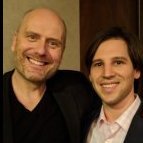Search the Community
Showing results for tags 'education'.
-
Hey guys, I'm an ESL teacher in Australia. I currently work at a 100% indigenous boarding school in Alice Springs. I've experienced first hand the issues Australia's indigenous youth experience in assimilating due to their population's subscription to victimhood mentality (among other causes). Recently I've started a blog as a method of poetic and political procrastination while I write my first novel in my spare time. I recently saw Stefan's "White Guilt" speech on Youtube, it spoke deeply to me about my own experiences. BEFORE I saw his speech I had written a poem about censorship, the feeling of white guilt that prevents us from criticising ancient cultures and how the lack of dialogue effects my students. I hope you like it. I would post it here but I'm not sure that all my formatting preferences are supported on this site (I like to make my poem's visual, placement is intentional). Feel free to comment on my poetic technique. You may gather what ideas I value from reading some of my other poems. https://nathanravesteyn.wordpress.com/2018/08/12/poetry-the-games-name-censorship-a-b-e-a-u-t-i-f-u-l-m-i-n-d/
-
- education
- aboriginal
-
(and 1 more)
Tagged with:
-
We see it on the news practically every week. Another teacher who has raped a child in public school, only it's not called "rape" because the perpetrator is a woman. I know Stef has alluded to the data before, but I haven't seen it laid out. Does anyone know where to find the rape rates for public schools that INCLUDE female teachers raping students?
-
Recommended to me by @Dylan Lawrence Moore, I found Rich Dad, Poor Dad (not sure if the comma is part of the actual title since I don't think it is but I put it there anyway) as an audiobook on YouTube. And by GOD ABOVE was it the most productive and empowering red pill I've ever swallowed! Not only did it "reveal" (I put quotes because if you've been following Stefpai some of the stuff should already be known to you--however if you're a fresh face to the real world then it's as good as any a first step!) a lot of truths and facts about society, money, and etc. but it fundamentally encapsulates the core distinctions between the Rich, the Poor, and the Middle Class. The audiobook for the book proper is only 3 hours long--I won't attempt to boil it down to a couple paragraphs because every line is worth listening to and frankly I'd do a disservice if I tried. You can find a way to break down 3 hours into diggestable bits as needed and you'll be well-rewarded for it. As a "spoiler" though I'll point out what Robert Kiyosaki claims (and I think rationally and reasonably) to be the primary distinction between the Rich and the Middle Class/Poor: Financial Literacy. Financial Literacy is essentially knowing what wealth is, knowing how to separate assets from liabilities and the wisdom to tell the difference before sealing the deal. Public School education isn't much and College Education is becoming increasingly worthless (worse than worthless actually; about a few hundred thousand dollars of bad debt + anywhere from 2-10 years of your life, potentially!) and I have to say this book as an introduction to financial literacy was worth far more than anything I've ever learned from the government schools. Even more than my ability to read and do basic math, I'd dare say. I don't care how old you are or how busy you are: you will be helped by this book and the younger and fresher you are the more empowered you'll be in the long run by this information. Don't be the Poor Dad and embody the Poor Dad's ways of thinking and being; become the Rich Dad and invest in yourself. And this free audiobook is definitely an infinitely profitable return on investment!
- 11 replies
-
- 2
-

-
- recommendation
- book
- (and 5 more)
-
I just had a conversation with a Muslim and I am so pissed that I'm going to share it with you guys =P. We all know that whites colonized most of what we consider the civilized world today. We brought education, modern medicine, electricity, water and waste management, trade, freedom, science, philosophy, truth and reason, we abolished slavery.... Whity is really cool. We should be proud of our ancestors. We didnt even conquer most of the lands we occupied. We obtained most of it through fair trade. But, as we know, the left is using academia to write an other history. A story of the evil greedy white men that enslaved everyone and starved everyone with capitalism and plotted some evil master plans with wipe out other races. You would be surprised, but the majority of people actually believe that crap. Even people with a college degree or a university diploma believe this shit. This Muslim I'm talking about is a pharmacist that comes from Algeria. She believes that the Armenian genocide is fake, that the whites in south Africa were horrible and that I am rewriting history every time i speak. Why am I talking to this idiot??? Good question. I dont think I should bother talking to someone who pretends everything I say is bullshit. But the shocking part is that she believes that the whites in south Africa should die. that the white genocide is a good thing. And she is not the only person I have hear saying this kind of disgusting thing this year. Most of the time, it is people from Africa or south america who believes the south African whites deserve this. This is unforgivable. What would happen if I were to say that the 500k children in Iraq that died because of the lack of electricity and drinkable water deserved to die because of the Muslim slave trade???? I think people would lose their shit. But someone can say, in front of a room full of people, that 5 millions Whites deserve to have their family raped to death in front of them before being gutted alive, and believe that they are completely virtuous. This Algerian girl wants to visit south Africa. I believe that once she is there, she will realize that the blacks dont give a shit if she is Muslim. That for the blacks, she is only an other white girl. And, someone who do not research what is really happening in the world and who celebrates the suffering of others, I dont believe this person deserves any empathy if shit hits the fan. Wow, I'm even more upset now then when I started writing this text. I'll just say this: We have nothing to be ashamed of our history, we do not owe anyone anything, we do not deserve the hatred of other races, we have a right to exist, to be free and the right to be happy. The leftist establishment is causing so much harm around the world. And if shit hits the fan, we have the right to defend ourselves.
-
I have been thinking a lot lately about teaching my sons a trade when they’re young. I’m thinking that it would be a good way for them to have a practical fall-back skill, and if I am able to “apprentice” them out to a trade master, then it would give them another male role model. Plus, I kinda want to avoid teaching in a way that is more or less the same as regular public schools. I think there are tons - endless, really - of fun things I can do with them that are fun and exciting and stimulating, but I think, for a good future, the basics need to be 1) how to be a complete man who rules himself, 2) how to think and how to find information, and 3) how to provide for himself. Any homeschooling parents doing this? I would be interested to hear thoughts or opinions!
-
Why do so many employers want a degree for fields that don't require them? I wanted to do Conflict Resolution and one employer said a Bachelor's degree is mandatory another said 5 yrs work experience and 2 years of college. I have 15 years of life experience in this area . Why isn't that enough? I would be more than willing to show them what I know with completing a test. Why isn't Life Experience valued over a piece of paper? Even though the occupation I want to be in don't require a degree employers still want one. Why? Do I just save up for that degree and endure the process?
-
Shred this https://gadflyonthewallblog.wordpress.com/2017/09/15/top-10-reasons-public-schools-are-the-best-choice-for-children-parents-communities/
-
The world needs more freedom. We know that. How do we get there? Spread knowledge. How do we spread knowledge? Learn the knowledge and learn how to spread it. How? Well, what are we giving to people? Some give knowledge about economics, some philosophy, some ethics, some freedom of speech, some politics, some current affairs, some immigration, some documentaries, ect. There's a lot of components to it. It requires specialisation. Stefan has encouraged a few times for young people to become entrepreneurs for freedom. It seems like a fuzzy buzz word that makes you think of motivation and getting things done but I don't see how to translates into practice. I can understand financial entrepreneurship, starting businesses ect, but what does if have to do with philosophy? What does it mean and how is that different (if it is) than going to university? Maybe education is really going to the dump in America but in Australia, I haven't seen this degradation of education. Maybe it's not about specialisation. Is it a matter of moral courage? Just spreading the 'word'? Maybe it's a matter of spreading UPB and the idea of the false self? The words have already been spoken on this show. I don't think there's much to be courageous about at the moment other than private life matters. I can understand telling friends and family about UPB and about my insecurities but I don't think that's entrepreneurship. I know some stuff sure, but there are other people doing way better than me so I don't understand why an amateur opinion has weight in the free market of ideas. To be an entrepreneur you have to give something of value. That's why I want to go to university and become a psychologist. Perhaps I'll find myself teaching parents about child abuse. Perhaps I'll do something Jordan Peterson style. Perhaps I'll write a book about morality and psychology. Perhaps I'll find out I hate psychology and quit. Perhaps I'll start a YouTube channel. One day I might start a YouTube channel but that's definitely not something I should bet my all time on. I'm still gaining the knowledge for that and I don't know what I don't know. Therefore, I don't know how much efforts that's going to take. That's why you explore. That's why I want to learn about the mind and meet other students and network. Starting a YouTube channel is something you do when it calls to you when you've gained the knowledge required. That's how Stefan started FDR. Debt for university? Sure but why should I worry so much about money? It's the 21st century. I'll be able to afford what I need for a comfortable life. Why put all your eggs in one basket? Money isn't the eggs. Time is the eggs. If you were made out to be a YouTuber why don't both go to university and try starting a channel? Figure out what works and what doesn't. If going to university was the best thing ever you'll be happy you didn't put it off and did it while you were young and could afford to take potentially useless courses. If it was useless going to university what difference does it make? Some money which you didn't really need. Time? No. It doesn't take concentrated effort/time to figure out what makes the world go around. It takes experience and trying different things which there's plenty of time for in university. Once you've figured that out that's the point where you decide whether to stay in university or not. As for spreading knowledge? All the big voices are held up by the pillars of writers, psychologists, economists, etc. If someone is more eccentric than I am, it makes more sense to be their support than to be another voice. People have different personalities. Is everyone cut out to be an entrepreneur? I don't know. And again, there's no issue with both going to university and having a voice. In fact, I'd say it's preferable even if it's a COMPLETELY useless degree. I'm looking forward to joining freedom clubs and debating clubs and making friends with intelligent and like-minded people To summarise, TL;DR: What I'm not understanding is what does Stefan means by entrepreneur. It's ambiguous to me. Is getting a formal education not being an entrepreneur? If you are rational and willing to find what drives you, the only real loss I see in formal education in Australia is money spent that you don't need anyway. If I didn't go to university I'd probably be making a living wage and reading Atlas Shrugged for the rest of the day. I don't know what else I'd possibly want to do. Conversations on this show about being an entrepreneur and breaking the matrix and escapaing the false-self has provoked a black and white thinking inside me and sometimes I believe I must be inferior but perhaps this belief is false.
- 7 replies
-
- university
- education
-
(and 4 more)
Tagged with:
-
Hello good people. Stefan often says that the State run education keeps costing more money while plummeting in quality. May i ask if anybody here has good sources of data showing decreasing literacy levels or educational standards and changing the tests standards etc, which Stef often mentions. Thank you in advance.
-
Hello everyone, I've been trying to figure out my own self-study program to learn philosophy and it got me thinking about how much fluff is added into your average university major. It seems that much of what is taught could be distilled into half a dozen or so courses that strike at the core of any given subject. For instance, I attempted to condense the UC San Diego philosophy degree and ended up with the following courses. (Feel free to post your own condensed versions of your university major program.) Introduction to Logic Symbolic Logic I History of Philosophy: Ancient History of Philosophy: Early Modern History of Philosophy: Late Modern Metaphysics Epistemology Philosophy of Science Which brings me to the question on the thread. Q: If a Bachelors Degree in Freedomain Radio existed, what would the course load look like and how would it be structured? Would a Freedomain Radio degree be strictly focused on philosophy? Should it be a (B.S.) degree or a (B.A.) degree? Would the course load consist of just reading Stephan's books, or would the course work also need to teach elements of statistical analysis, computer science, and history? What do you all think?
- 6 replies
-
- 2
-

-
- university
- education
-
(and 6 more)
Tagged with:
-
Hello Everyone, As the title says, I gave a presentation to a group of Chinese teachers/parents/educational administrators about education, corporal punishment, and ADHD. The discussion focused primarily on the USA. I covered several topics that I think will be of interest to the FDR community. I even used a few of FDR's graphs. Any feedback/constructive criticism is welcome. Thanks YouTube Description: A lecture given to a Chinese audience on education, corporal punishment, and ADHD. Note: projector image becomes clearer after a few minutes. Sources: Arum, R., & Roksa, J. (2011). Academically adrift: Limited learning on college campuses. University of Chicago Press. American Psychiatric Association. (2013). Diagnostic and statistical manual of mental disorders (DSM-5®). American Psychiatric Pub. Frances, A. (2013). Saving normal: An insider's revolt against out-of-control psychiatric diagnosis, DSM-5, big pharma and the medicalization of ordinary life. Psychotherapy in Australia, 19(3), 14. Gatto, J. T. (2000). The underground history of American education. New York, NY: Oxford Village Press. Gatto, J. T. (2009). Weapons of mass instruction. Canada: New Society Publishers. Gershoff, E. T., & Grogan-Kaylor, A. (2016). Spanking and Child Outcomes: Old Controversies and New Meta-Analyses. Journal of family psychology: JFP: journal of the Division of Family Psychology of the American Psychological Association (Division 43). Gershoff, E. T. (2013). Spanking and Child Development: We Know Enough Now to Stop Hitting Our Children. Child Development Perspectives, 7(3), 133-137. Kohn, A. (2007). The homework myth: Why our kids get too much of a bad thing. Da Capo Press. The War on Kids: http://thewaronkids.com/ Ending Corporal Punishment: http://www.endcorporalpunishment.org/ Summerhill: http://www.summerhillschool.co.uk/ Imagine a School…Summerhill: UK state schools ban corporal punishment: http://www.independent.co.uk/news/las... 19 states allow corporal punishment: http://www.businessinsider.com/19-sta... Homeschooling: http://www.nheri.org/research/researc... College bubble: The College Con: http://www.nytimes.com/2011/01/09/edu... Drop-outs: Why you should never spank a child: http://www.telegraph.co.uk/science/20... George H. Smith: The Success of America's Public School System: Morrow, R. L., Garland, E. J., Wright, J. M., Maclure, M., Taylor, S., & Dormuth, C. R. (2012). Influence of relative age on diagnosis and treatment of attention-deficit/hyperactivity disorder in children. Canadian Medical Association Journal, 184(7), 755-762. Szasz, Thomas. Myth of mental illness. Vol. 15. New York, 1961. Whitaker, R. (2010). Anatomy of an epidemic. New York.
-
- 1
-

-
- education
- corporal punishment
-
(and 3 more)
Tagged with:
-
Many of you have probably seen my videos in which I illustrate provocative and compelling philosophical thinkers. If you haven’t please check out my YouTube channel Illustrated Philosophy. Here’s the latest one narrated by Stef and Dr. Linda Gottfredson on race and intelligence.
-
- 1
-

-
- Gottfredson
- Intelligence
-
(and 7 more)
Tagged with:
-
I am not a parent yet, and I'm not sure that this technically falls under "Peaceful Parenting" but it certainly has to do with parenting and I've been giving this a lot of thought lately for some reason. What is the best way to teach a kid about sex or to explain where babies come from? I think there are some general principles and objectives that we can agree to from the start: You shouldn't lie about it no matter what their age (e.g. no talk of storks) However, you shouldn't get into details that aren't age appropriate either (e.g. showing college level anatomy books to 5-year-olds) You should aim to impress upon the kid that this is serious business and not to be taken lightly. Sex can ruin lives and emotionally destroy yourself or others when abused. At the same time they shouldn't be left with that puritanical guilt thing (like I was to some extent). By the time the kid is in their late teens they should understand the basics of sexual market value theory. Both male and female teens should be taught about what quality men and quality women ACTUALLY want in a partner. They should be made aware of the different types of sexual predation that can be practiced by both men an women. Most importantly, your child should feel comfortable coming to you with any questions or issues that come up. Does anybody have any disagreements, amendments, or critiques of this so far? I'm still working on these ideas so I'd appreciate your feedback.
-
Hello, FDR community, I'm an American working as an English teacher a French high school. I started listening to FDR podcasts last year and for a long time have had problems with the public school system but after listening to a lot of various podcasts around here (I just recently found schoolsucks, and have to run through their content now too). Being a foreigner, I have an extremely privileged position in the educational community here. My job is to work with students' speaking and listening skills. We practice to make our English more "authentic" and to improve casual fluency. A lot of what I do everyday is conversation in small groups, We talk a lot about current events or discussing what they're doing in their other classes/practicing things from other teachers' lessons. When I don't have to practice specific topics, I've taken to asking them what they want to do. I'm trying to get my classes of students to take the reigns and steer the class to where they want it to be. I'm just a tiny blip in their lives of people that isn't trying to force them to do things, but I want to believe that I'm not wasting my time. I'm certainly getting current value out of this job, at least for the moment. I don't intend to be here forever (I can't even if I wanted to), but while I am here, I want to try and to the best I can. All of that said, I'll now list some problems I've encountered that I'd like advice with. First of all, I'm living in the heart of the socialist France. The country's politics are slowly changing (VERY SLOWLY), but I live in one of the few regions where the socialist party is the only game in town and nobody even thinks about voting for anything different. I'm not trying to make this about politics, and I haven't had the opportunity to talk about philosophy in regards to socialism. I'm only mentioning this to describe the environment I'm currently in, and what my kids have grown up in. It has influenced their thinking. Because of the above issue, I have some students that to me seem completely broken. They don't know what they want anymore. They just want to be led around, and they freeze when given the chance to have a little blip of freedom in what they want to do with their time with me. I always tell them that we can do anything at all as long as we talk in English. I've been asking some classes since the year started in September to tell me what they want to do and I still haven't gotten clear ideas. When I do get topics, it's often that they want to talk about entertainment and sports. I let them do it because it's what they want, but it does tend to get stale, and I can see that often they just bring up these kinds of topics because they don't know any better. I have one class that I've fallen in love with. They're in an advanced program and they came to me and complained that my classes didn't have enough structure and that they wanted to learn about american government. I lament that I can't have them more than once a week. That said, we've gotten to discuss lots of meaningful topics like small government and gun control, which is another topic that fascinates them. You know, when I began typing all of this out it seemed like I had more problems than students having their passion circumcised. It's a huge problem, but at least it's only one. What can I do to help my dispassionate students? Is the system actively sabotaging my efforts and is the situation hopeless? I don't expect to change their lives or be revolutionary, but if I can demonstrate some good ideas, maybe I can make a tiny difference to them.
-
Hello, I am on the hunt for some good critical thinking-for kids sources. Websites, books, whatever you have. My kids are 6 and 8 and I do some of my own but sort of running out of ideas that they can grow into. I recently saw a video (unrelated to this) but a woman suggested a book for kids called I Wonder or Eye Wonder but didn't reference the author, so if anyone has more details on this book, please post. Also, referenced was Camp Quest. I found only websites for an actual camp retreat for kids but I do not live in the US, so I guess that isn't relative unless there is another Camp Quest (like a general website, etc) Thanks FDR community!
- 6 replies
-
- peaceful parenting
- critical thinking
-
(and 2 more)
Tagged with:
-
I am taking a class in my 3rd year of university called research methodology. the first lecture discussed nursing research, the role it has within the profession and in healthcare. A large part of the research was about types of research and the main paradigms that researchers subscribe to. There is the positivist paradigm and the naturalist paradigm. Each camp has its own views about reality. Positivists are empirical and objective, believing " . . . that there is reality out there that can be studied and known . . . objective reality exists independent of human observation." (Loiselle & Profetto-McGrath, 2011). They are called determinists as they believe that phenomena not random but have antecedent causes and they use an approach that involves realiance on orderly, rigorous procedures with tight control over situations to test predictions about the nature of phenomena and they relationships among them. (Loiselle & Profetto-McGrath, 2011). Positivisists use quantitative research methods, meaning they find ways to measure phenomena so that they can use statistics to analyze data. Naturalists are presented as a countermovement to positivism. The naturalistic researchers, reality is not a "fixed entity" but rather a construction of the individuals participating in the research ( (Loiselle & Profetto-McGrath, 2011). They are relativist thinkers who posit "if there are always multiple interpretations of the reality that exists in people's minds, then there is no process by which the ultimate truth or falsity of the contractions can be determined." They believe that knowledge is maximized when the researchers and the participants are close to one another. They listen to voices and interpretations of those under study because they think that subjective interactions are key to understanding phenomena (Loiselle & Profetto-McGrath, 2011). These researchers use QUALITATIVE methods. My professor revealed her bias toward Qualitative research methods throughout the lecture. Her tone and word choice are what lead me to believe she had a bias. When speaking about QUALitative research methods she words like: we, us, our patients. When she spoke about QUANTitative research she used words like they and them. She said something like, "they think all people are the same, they treat people like numbers and not unique individuals". Two other professors, with whom I have discussed the possibility of performing and publishing research as an undergraduate, have leaned heavily toward the naturalist worldview. They seem to discourage quantitative methods. My analysis of the situation: Qualitative research has a place in any social research area. It is often used to simply explore groups and populations of people gain insight as to what phenomena may exist. Which sets the stage for people who do actual science to produce credible information about our world. For some reason qualitative research is presented as an equal methodology. If we are seek to be intellectually honest we should simply describe it as what it is. A method in which a researcher gathers subjective information from a very small group people or even a single person, then presents a subjective interpretation of that information. I think the undue respect given to qualitative research is largely the fact that it is an easy way for a Professor to appear productive. Math takes to much effort. Why would a person (a person as Hobbes sees people) put in the effort and time to publish quantitative research when they can produce qualitative papers 4 times as fast? Publishing Quantitative research requires the use of math/statistics while qualitative research can be as easy as writing a glorified blog post. The pay is the same for either way. Nursing is also dominated by women who constantly seek to validate their profession. They want to be seen as professionally equal to physicians and even express feelings of moral superiority claiming they love and truly care for their patients. Yes, it is important that patients feel like their healthcare providers actually care about them because it fosters a belief in ones ability to overcome disease. It is also simply nice for patients to be around kind people, but flattery, warm feelings, and bad acting don't cut the cancer from their bellies or prevent micro-organisms from overwhelming their systems. To do that you need to draw from 100's of years of truth (that which is rational consistent and empirically verifiable). So now that I have had my rant. Do you think the naturalist paradigm (qualitative research) should be considered truth?
-
As a European living in Thailand, I spend a lot of time thinking about how much potential is squandered by the ubiquitous corruption in Asian cultures. Many Westerners make the mistake of thinking it is something that can be addressed directly by "crack-downs" on bent officials, that you can remove a layer of grime and undercover a modern society, but the roots of this problem run so much deeper that I have serious doubts about whether it can ever be overcome. Readers of this forum will be well-aware that the self-replicating life-blood of twisted societal structures - such as abusive policing, permanent wars, parasitic politicians, ignorant populaces - is child abuse, in its many forms ranging from early exposure to aggression to years of educational incarceration. When we intellectualize this fact, however, it is all too easy to lose touch with the visceral reality of this situation for hundreds of millions of children. Today, a highly disturbing video is blowing up on Thai social media. It shows a father "educating" his four-year-old son. It was secretly filmed using a smartphone by the man's wife, the child's mother, herself the victim of years of violence, because she could think of no other way to save him - towards the end, we hear her desperately pleading "Stop, you'll kill him". Her release of the video onto Facebook quite probably saved the child's life and the widespread attention meant that he was not able to simply pay the normal bribe of a few dollars that usually resolves such matters, the police had to actually arrest him. Tragically, however, the seeds of damage have almost certainly now been passed along to his son. As a reminder of the sheer brutality which parents are capable of inflicting upon their own children, and of the importance of fighting this evil, I would like to share the video here. This is a link to YouTube. Please be aware that this is extremely upsetting, think about whether you really need this reminder, but for me it was an important insight into a primal instinct that flows beneath life here, resulting in an apathetic acceptance of corruption in daily life, the eradication of intellectual curiosity in children and the resigned acceptance of shoddy standards in everything. https://youtu.be/UmpWWEcO7HU
-
Elon Musk was dissatisfied with regular school and started one, called Ad Astra (Which probably means "To the Stars") to educate his 5 children and also 9 children of SpaceX employees. "The CEO wanted his school to teach according to students' individual aptitudes, so he did away with the grade structure entirely." Musk was asked in a Chinese TV Interview about his fatherhood and opened about his new school, in existence since only one year. The Interview covers all kinds of topics, they talk about the school beginning at 24m 42s. https://youtu.be/3UxL-0--oQo?t=24m42s https://www.youtube.com/watch?t=17&v=3UxL-0--oQo Articles http://uk.businessinsider.com/elon-musk-creates-a-grade-school-2015-5?r=US http://www.theverge.com/2015/5/22/8646683/elon-musk-school-spacex-children
-
Hello, I'm wondering how one should deal with self-criticism and self-censoring. I find that I often don't speak my mind, tend not to trust my own conclusions as much as I perhaps should, and tend to be overly gentle and deferential to others. To be brief, I am the youngest of four children. There is an 11-year age gap between me and my next-oldest brother. I have one other brother, and a sister, who is the oldest of the siblings. I was born in 1959, and am currently 55 years old. I was an unplanned child, and grew up in a family of very capable brothers and sisters. My sister earned a Chemical Engineering degree from CWRU, one brother was an officer in the US Army, and my other brother earned an Aeronautical Engineering degree from MIT. My education was a very different story. I got off the rails, academically, at a young age, and pretty much earned C's, D's and some F's throughout school. My parents tried to help, a bit, but I have the sense that I was largely an embarrassment to them. I have always been idealistic and was interested in science and electronics from a young age. If I was interested in something, I gave it my full attention, but if I wasn't interested in it, I typically ignored it. Generally speaking, I never had help with my homework. I remember sitting around the kitchen table, when my siblings would come home, and being constantly afraid to breathe or say anything, for fear that someone would make a nasty comment, or ask me about my grades, etc. I felt like the black sheep of the family, if that makes any sense. From time to time I would lie, and say that I did things in school that I didn't do. My parents should have realized that what I was claiming was bullshit, but they didn't seem to investigate, or call me on it, or recognize it as a sign of something being wrong. My parents would often say "You're smart enough to do well, but you're just lazy." Over time, I developed perfectionist tendencies, and I think they have been with me my whole adult life. I earned a degree in Computer and Information Science from The Ohio State University in 1983, and have made a good income as a software engineer since then. Sadly, I got divorced after 30 or so years of marriage. I am on good terms with my ex-wife and strive to treat her and others with justice. Bottom line, I have had a hard time shaking feelings of inadequacy. I'm very interested in practical philosophy, and I have had a big Ayn Rand / rationalistic phase. I think I'm getting away from the rationalistic aspects of it, but still consider most of Objectivism valid, even if I tend to lean more towards a stateless society these days. I have been listening to Stephan for the last year or so. I'd welcome any advice you might have for me. I'm wondering to what degree I should be angry with my parents. They are both dead now. I know the old line about "They did the best they could with the knowledge that they had," but I'm pissed that they kind of just let me struggle. I don't understand why they couldn't find some goddamn time to simply help me with my homework more. Thoughts? Best, John
- 7 replies
-
- self-criticism
- education
-
(and 2 more)
Tagged with:
-
Hi, FDR I am in the planning stages of creating a curriculum for homeschooling, and it would be great if my product could fulfill the needs of people like the ones here. I am looking for secular homeschoolers. I would like to know about the textbooks and classroom resources you use. Ubiquitous topics like algebra, chemistry, and music have been done very well. I would like to fill niche areas, instead. Does your homeschooled child have access to courses such as: engineering, hydrology, thermodynamics, ecology, mycology, nutrition, food chemistry, quantum mechanics and do any of these courses resonate with you? Would you purchase course materials for these or other course topics? I appreciate your feedback. When my product goes to market, I will give generous discounts to anyone who provides honest feedback. Best, Tibor
- 4 replies
-
- homeschool
- homeschooling
-
(and 8 more)
Tagged with:
-
Hey Everyone, This is my first time posting a subject on the board, but I think I'm posting in the right section. Please correct me if I am doing something wrong. So, I've noticed that a number of schools and colleges (abstract, I know), at least in the United States, have been at arms about the app Yik-Yak, which allows anyone with the app to anonymously post a short comment that everyone can see and rate. Do you think that apps like this help or hurt the human progress towards freedom? If you need me to supply any specifics let me know. Also, tangents relating to Yik-Yak are more than welcome!
-
University of Cumbria is hosting a free online class titled Money and Society in February-March 2015. It promises to enable students to: Critically assess views on the form and function of money and currency by drawing from monetary theories Explain theories on how social, economic and environmental problems arise from mainstream monetary systems Explain alternative forms of money and currency and the theories on how they can support better social, economic and environmental outcomes. Sounds like good fun - check it out....
-
Hello All, I have been an FDR subscriber/donor for years. To quote my favourite philosopher, "I hope you're all doing very well". I sit on the board of the Compass Centre for Self-Directed Learning, a charity in Ottawa, Ontario that provides support and guidance to teens that have chosen to pursue their educations outside of the conventional government school system. Many homeschooling and unschooling families in Ottawa use the services of Compass. Compass is competing for a prize being awarded by the Canadian Scholarship Trust. The prize is for innovation in education, and goes to the idea with the most votes on their web site. If you support the project of getting kids out of the government school system, please give us a hand. Go to http://learningproject.cst.org/ideas/376 and register. Registering is a minor hassle, but once that's done, it's very easy to vote. You can vote every day for the next couple of weeks. Many thanks. Jared














